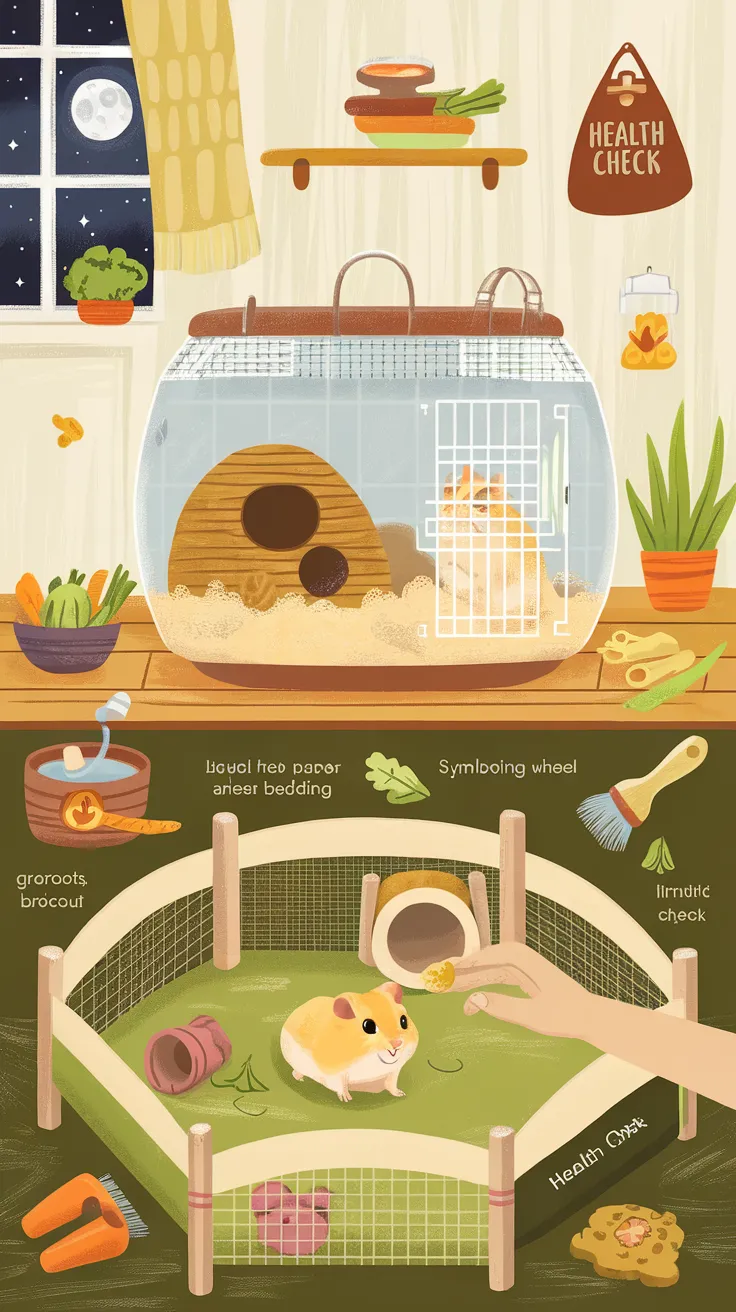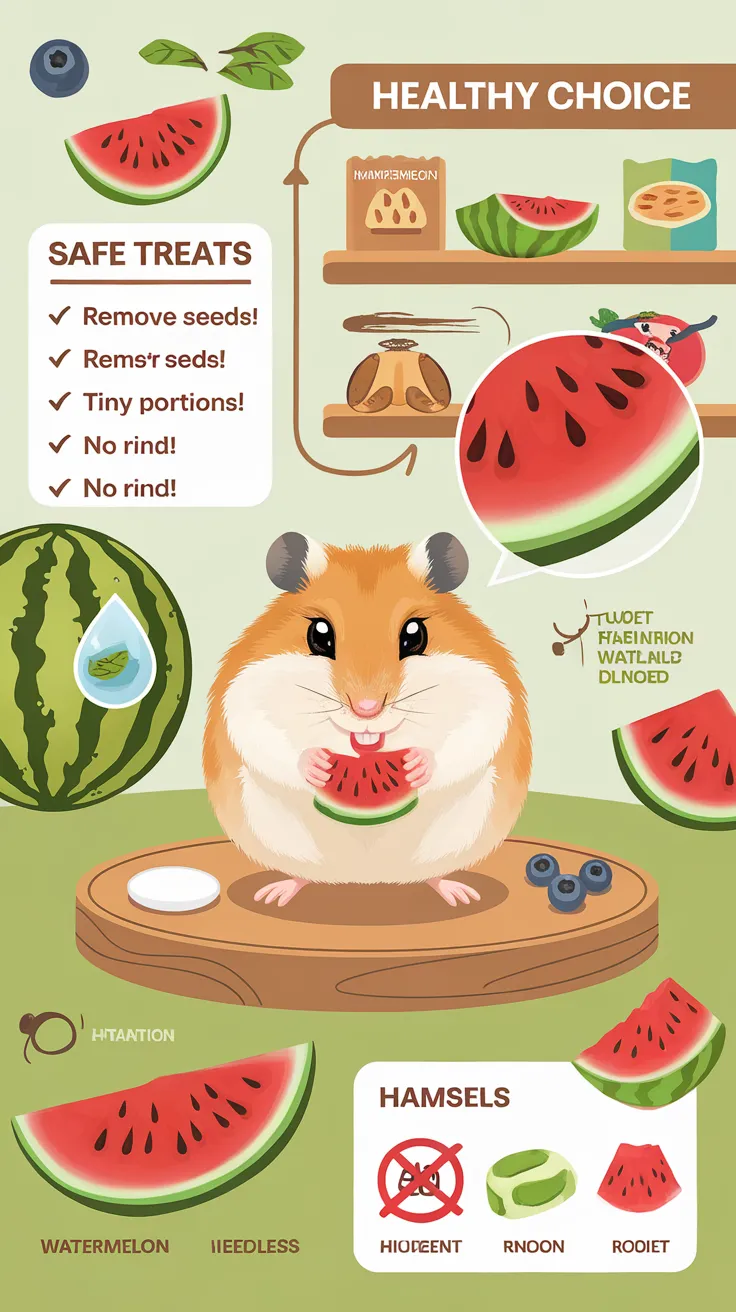How Long Can A Hamster Go Without Food Water: Essential Facts
A hamster can survive without food for about 3-4 days. Without water, it can live for around 2-3 days.
These small creatures have specific needs for survival. Hamsters are tiny pets that rely on regular nourishment. Like any living being, they need food and water to stay healthy. Neglecting their diet and hydration can lead to severe health issues.
It’s crucial to understand their needs to ensure their well-being. In this blog post, we will explore how long a hamster can go without food and water. We will also discuss the importance of maintaining a proper feeding schedule. This knowledge will help you provide the best care for your furry friend. So, let’s dive in and learn more about hamster care!
Hamster Diet Basics
Hamsters are small, furry creatures that many people love to keep as pets. Understanding their diet is crucial to keeping them healthy. A proper diet helps them live longer, happier lives. Let’s dive into the basics of a hamster’s diet.
Nutritional Needs
Hamsters need a balanced diet to stay healthy. They require proteins, fats, and carbohydrates. Fresh water is also essential for their survival. Vitamin and mineral intake is crucial too. Without these, hamsters can fall ill quickly. Fiber helps with their digestion. Make sure their diet is varied and balanced.
Types Of Food
Hamsters eat a variety of foods. Pellets provide a balanced nutrition option. Fresh vegetables are also good for them. Carrots, broccoli, and spinach are excellent choices. Avoid giving them too many fruits. Fruits have high sugar content. Seeds and nuts are favorite snacks, but only in small amounts. Too many can cause obesity. Fresh water should always be available. Change the water daily to keep it clean.
Water Requirements
Water is vital for the health and wellbeing of hamsters. They need a consistent supply of fresh water to stay hydrated. Dehydration can lead to serious health issues and even death in extreme cases. Understanding your hamster’s water requirements is crucial for their care.
Daily Water Intake
A hamster needs about 10-15 milliliters of water daily. This amount can vary based on size, age, and activity level. Ensure their water bottle is always filled with fresh, clean water. Check the bottle daily to make sure it is working properly. Replace the water every day to prevent bacteria growth.
Signs Of Dehydration
Dehydration can be dangerous for hamsters. Look for signs like dry mouth, sunken eyes, and lethargy. Their skin may lose elasticity, and they might have difficulty moving. If you notice these signs, offer water immediately. Seek veterinary help if the condition does not improve. Regularly monitor your hamster to ensure they are drinking enough water.
Impact Of Food Deprivation
Hamsters can survive up to 3-4 days without food and water. Prolonged deprivation impacts their health severely, leading to serious complications. Regular feeding is crucial for their well-being.
Food deprivation can significantly affect a hamster’s health. Hamsters, like many small animals, have high metabolism rates. They need a steady supply of food and water. Without it, they face serious health issues.Short-term Effects
Short-term food deprivation can make a hamster weak. They may become lethargic and less active. Their fur might look dull. They can also become dehydrated quickly. Dehydration can lead to other health problems.Long-term Risks
Long-term food deprivation poses severe risks. Hamsters can lose weight fast. They might suffer from malnutrition. This can weaken their immune system. They can become more prone to infections. Persistent lack of food and water can be fatal. Ensuring your hamster has enough food and water is crucial. It helps them stay healthy and active. “`Impact Of Water Deprivation
Water is essential for all living creatures, including hamsters. Lack of water can seriously harm your pet. Understanding the consequences helps in providing better care for hamsters.
Immediate Consequences
Hamsters need water daily. Without it, they become dehydrated quickly. Dehydration starts within hours. You may notice less activity and dry eyes. Their fur might look rough and untidy. Hamsters can also become weak and lethargic.
Prolonged Dehydration
If dehydration continues, the situation worsens. Hamsters can develop severe health issues. Their organs start to fail. Kidney damage is common. Lack of water affects digestion and can lead to constipation. The immune system weakens, making them prone to infections.
In extreme cases, prolonged dehydration can be fatal. It is vital to ensure your hamster always has access to clean water. Regularly check their water supply. A hydrated hamster is a healthy hamster.
Factors Affecting Survival
Understanding the factors affecting survival of a hamster without food and water is crucial. These factors determine how long a hamster can live under such conditions. Several elements come into play, influencing their survival time.
Age And Health
The age and health of a hamster are significant factors. Young hamsters have higher energy needs. They dehydrate faster and need food more often. Older hamsters may have slower metabolisms but could suffer from health issues. Sick hamsters are at greater risk without food and water.
Environment And Stress
The environment a hamster lives in affects its survival. A warm, dry environment causes faster dehydration. A cold environment can lower their energy needs but could also weaken them. Stressful conditions, like loud noises or overcrowding, can increase their need for food and water.
| Factor | Impact on Survival |
|---|---|
| Age | Young hamsters dehydrate faster |
| Health | Sick hamsters are more vulnerable |
| Environment | Warm and dry conditions increase dehydration |
| Stress | Stress increases the need for food and water |
In summary, the survival of a hamster without food and water depends on multiple factors. Their age, health, environment, and stress levels all play a role. Ensuring a hamster has a stable environment reduces the risk of dehydration and starvation.
Emergency Care Tips
Ensuring the well-being of a pet hamster during an emergency is crucial. Sometimes, our tiny friends might go without food or water for various reasons. Knowing how to care for them during these times can make a big difference. Here are some emergency care tips to help your hamster recover.
Rehydration Methods
Dehydration can be serious for hamsters. Here are a few methods to rehydrate your pet:
- Fresh Water: Offer fresh, clean water immediately. Use a water bottle or a small dish.
- Hydrating Foods: Provide water-rich foods like cucumber and watermelon. These help in rehydration.
- Electrolyte Solution: Mix a small amount of an electrolyte solution with water. Use a dropper to gently offer it.
Nutrient Recovery
After rehydration, focus on restoring nutrients. Here are some tips:
- High-Quality Pellets: Offer nutrient-dense hamster pellets. These provide essential vitamins and minerals.
- Fresh Vegetables: Include small pieces of carrot, broccoli, and spinach. These are rich in nutrients.
- Protein Boost: Give small amounts of boiled egg or mealworms. These help in protein recovery.
Monitor your hamster’s intake. Ensure they eat small amounts frequently. This helps in gradual recovery.
Preventing Food And Water Shortages
Ensuring your hamster always has enough food and water is crucial for its health. Preventing shortages can help your pet stay happy and active. Here’s how you can ensure your hamster never runs out of these essentials.
Regular Monitoring
Check your hamster’s food and water levels daily. Regular monitoring helps you spot any issues quickly. If you see the food bowl getting empty fast, it might be time to increase the amount you’re providing.
Use clear water bottles to easily see if the water is running low. Make sure the water bottle is working properly. Sometimes, the nozzle can get blocked. A quick daily check ensures your hamster stays hydrated.
Reliable Food And Water Sources
Choose high-quality food that meets all your hamster’s nutritional needs. Fresh fruits and vegetables can be great additions, but always check which ones are safe for hamsters.
| Safe Foods | Unsafe Foods |
|---|---|
| Carrots | Chocolate |
| Apples (no seeds) | Onions |
| Broccoli | Garlic |
Ensure your hamster has access to fresh water at all times. Use a reliable water bottle that doesn’t leak. Clean and refill the bottle daily to prevent bacteria growth.
Creating a feeding schedule can help maintain consistency. Feed your hamster at the same time each day. This routine helps in monitoring their eating habits and ensures they always have food.
Frequently Asked Questions
How Long Can A Hamster Survive Without Food?
Hamsters can survive without food for about 3-4 days. However, it’s crucial to provide them with a regular food supply to maintain their health and well-being.
How Long Can Hamsters Go Without Water?
Hamsters can go without water for approximately 1-2 days. They need a constant supply of fresh water to stay hydrated and healthy.
What Happens If A Hamster Doesn’t Eat?
If a hamster doesn’t eat, it can become weak and malnourished. This can lead to serious health issues, so ensure they always have access to food.
Can Hamsters Go A Day Without Food?
Yes, hamsters can go a day without food. However, it’s not recommended as it can affect their health. Always provide daily meals.
Conclusion
Ensuring your hamster has consistent access to food and water is essential. They depend on these basics for survival and health. Dehydration can occur within a day, so always check their water supply. Regular feeding keeps them energetic and happy.
A balanced diet supports their overall well-being. Monitor their habits and adjust as necessary. Your attentive care keeps your furry friend thriving. Remember, a well-fed and hydrated hamster leads a longer, healthier life. Take care of their needs daily to avoid any health issues.
Your hamster’s happiness lies in your hands.



